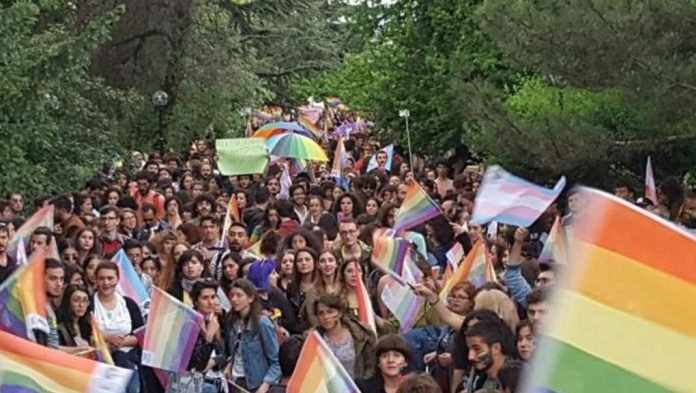The rector’s office at the Middle East Technical University (ODTÜ) in Ankara has banned an annual pride march that was to be held on the campus on June 10 amid an increasing number of bans on musical and cultural events in the country, Turkish Minute reported.
In an email sent to students the rector’s office said all kinds of security measures will be taken if the students insists on holding the “unauthorized march,” adding that there are efforts to present ODTÜ as the center of these marches and that such efforts damage the prestige of the university.
The pride march was organized by the university’s LGBTI organization Solidarity Club, established in 2011. The club, which has been organizing pride marches at the university since 2011, has not been able to hold the gay march for the last two years due to the Covid-19 pandemic.
The last pride march at the university took place in 2019 despite a ban from the rector’s office, when police battered and detained some students who took part. Eighteen students and a professor who were later indicted for violating the law on demonstrations and public meetings were acquitted of the charges. An Ankara court ruled in 2020 that the ban on the pride march had no legal basis.
Homosexuality is not illegal in Turkey, but homophobia is widespread. After a spectacular Pride March in İstanbul drew 100,000 people in 2014, the government responded by banning future events in the city, citing security concerns.
It is common for ruling Justice and Development Party (AKP) politicians and their leader, President Recep Tayyip Erdoğan, to attack LGBTI individuals and accuse them of perversion and destroying family values.
Meanwhile, Turkey was ranked 48th among 49 countries as regards the human rights of LGBT people, according to the 2021 Rainbow Europe Map published by the International Lesbian, Gay, Bisexual, Trans and Intersex Association (ILGA)-Europe in May.
Nowadays, local administrations or some universities continue to ban concerts and cultural and social events planned to be held across Turkey, citing a variety of reasons including public safety and respect for Turkish soldiers killed during a military operation in Iraq, in moves seen by many as attempts by the AKP government to interfere in people’s lifestyles and to force its Islamic values on the nation.










